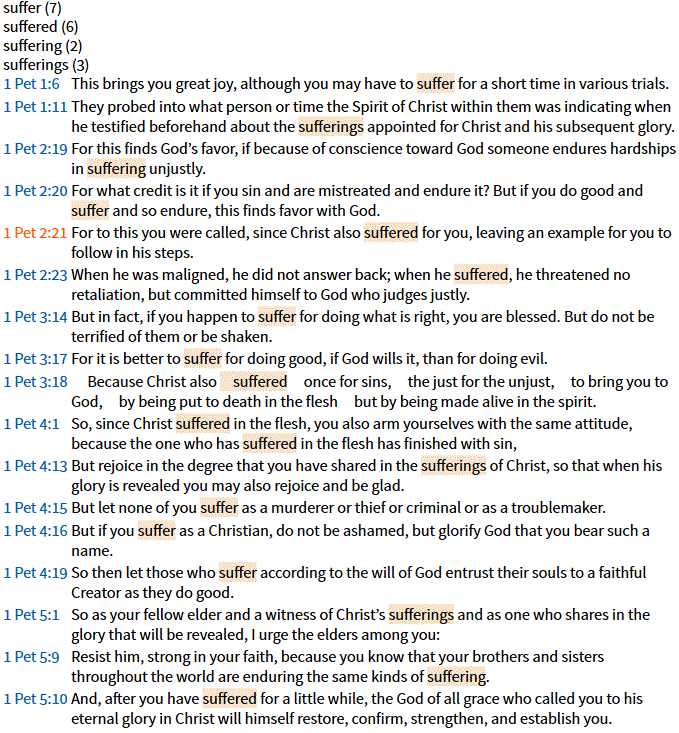Facts are stubborn things; and whatever may be our wishes, our inclinations, or the dictates of our passions, they cannot alter the state of facts and evidence.
The same thing may be said of words—they are stubborn things. There is great power in the pen and in the tongue. John Adams was certainly not the wordsmith of the calibre of Thomas Jefferson. Nevertheless, he understood that words can wield tremendous influence, particularly in tumultuous times. As Winston Churchill demonstrated, the right words spoken authentically at the right time could move people beyond their self-imposed limitations. Is it any wonder, then, that the Almighty Maker of heaven chose to use the written word to reveal Himself to His creation?
In Part 13 of this series, the value of comparing English Bible translations was introduced. I argued that the benefit of such a study technique was to stimulate reflection. Our familiarity with a favorite translation sometimes inhibits our curiosity. Seeing a different word choice in a text can promote a deeper understanding, with the caution that studying words is something best done with care.
In this installment, I want to help frame the need for balance on using secondary resources with your own work in the biblical text. Returning to 1 Peter, let us again take a look at the biblical text and see how this works:
Peter, an apostle of Jesus Christ,
To those who are elect exiles of the Dispersion in Pontus, Galatia, Cappadocia, Asia, and Bithynia... 1 (Peter 1:1 ESV)
The two words underlined are not exactly common in our day-to-day usage. The word "elect" has some significant biblical weight to it, so let us set that aside for now and look at "exiles". Using the process of version comparison, we find NASB says "those who reside as aliens" and KJV says "strangers scattered throughout." How do we come to know which is best?
We could rely on someone like Kenneth S. Wuest, Wuest’s Word Studies from the Greek New Testament: For the English
Reader, who writes about this word:
The English word “strangers” refers to anyone with whom we are not acquainted. But the Greek word means far more than that. It is parepidemois (παρεπιδεμοις), made up of para (παρα), “alongside of,” epi (ἐπι), “upon,” and demos (δεμος), used in Biblical Greek of the people of a heathen city. The word here describes the recipients of this letter as Christians who have settled down alongside of the unsaved. Peter uses the same word in 2:11. He will not let us forget that we are living among the unsaved who are always carefully observing us.
Now, honestly...would you have discovered this on your own? I am not sure that I would have. My main point in bringing this out is that we really can benefit from secondary resources to help us, but how do we know we can trust what they say? Wuest has done all the work for us, so we are simply given the choice to agree or not (note that I'm not saying he's incorrect).
Returning to John Adams' quote above, "the state of facts and evidence" is essential. If our only available evidence at hand is an English Bible translation (as trustworthy as it is), we might get intimidated when we see that behind the curtain is an inaccessible ancient biblical language. Frankly, this is why I see great value in digital tools, because it lowers the barrier to such study.
But for the majority of us who do not have access to such resources, I will once again affirm the great value in comparing translations. I submit that you indeed could have taken the various English translations and come to see what Wuest amplified for us in his Greek word study. So, don't let some learned pastor blow you away with an irrefutable Bible word study that supposedly gives you the real meaning of the word. With the aide of the Holy Spirit and with ample time invested, you are quite capable of coming to a solid grasp of much of what is written in Scripture (I'll remain cautious and not say all that is written, as the Bible is inexhaustible). Moreover, with respect, that pastor may be wrong! Don't get me started on such bad statements like Dunamai = dynamite (see http://scribblepreach.com/2013/02/18/7-ways-to-do-a-bad-word-study for helpful tips on what to avoid in doing word studies).
O how I love your law!
All day long I meditate on it.
Psalm 119:97 (NET)
This is really the key. Using the available translations should give you much to think about, and that's what the word meditate in the Bible means—think, ponder, prayerfully reflect. It's not some Eastern, mystical experience. Why don't you spend tomorrow thinking about how as a Christian you are an alien or a foreigner or a stranger journeying this land?
,_2nd_president_of_the_United_States,_by_Asher_B._Durand_(1767-1845)-crop.jpg)
























